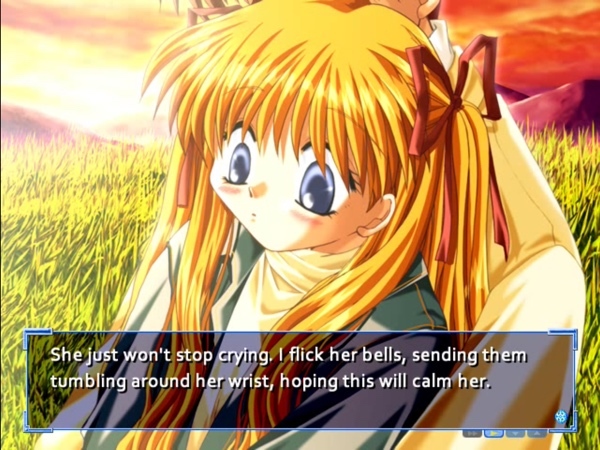Makoto’s arc raised an interesting question for me. What does Makoto’s arc say about the way we treat those who are about to die?
Reading through this arc, I realized that the way people treat their beloved friends and family on their deathbed is very different from the way they treat pets. For people, the focus seems to be on the living: allowing everyone to have a moment of closure with the person that they are about to lose. For pets, though, we focus on the soon to be departed, comforting them and making sure their last moments are the best they can be.
While we all likely have different images of how our last moments will be, I imagine my last moments will be spent comforting my loved ones. Offering my final good wishes to each of them, telling them how much they meant to me, and letting them know that I am at peace. Even if I was in pain, and all I really wanted was release, it would be my responsibility to see that I left the ones I cared about as best I could. Perhaps this image has come to me from culture (I must admit, it feels a bit cliche, and I’ve never been present for someone’s death), but it’s hard to imagine feeling selfish in the last few moments of being myself. I might have a few last requests for myself, perhaps a good last meal or a few items to help comfort me, but I feel like my main interest would be for the world that I’m about to leave.
If I had to deal with the loss of another, I think I would assume the same of them. I would want to make sure they had their affairs in order, and I’d be ready to take on any responsibilities they had for me. There’s a reason why a dying person’s last wishes are considered sacred, and I’d treat them with appropriate reverence. Sure, I’d want to make sure they were comfortable, but more than that I’d just want to take advantage of those last moments so I could remember my life with that person as I went on in my life without them.
Compare this to how people treat pets in their final days. I’m reminded of the story that went viral called “I died today.” The story follows a dog’s last day before being put down. Everyone joins the dog for a picnic on the floor, and the dog gets to eat cheeseburgers, human food that he only gets normally as table scraps. Then, the dog takes a trip to a park and plays in a water park. I’ve never known a dog that didn’t get excited when going to a park or playing in water, and the pictures made it look like this dog was having the time of his life. The last time of his life, but the time of his life.
In the end, the way we treat those last moments is so different. For humans, the legality of euthanasia and physician assisted suicide is hotly debated and varies from place to place. For animals, though, euthanasia is almost unilaterally considered merciful.
Makoto’s arc really feels like the last moments of a pet. Everyone’s focus seems to be on Makoto, and making sure that he final days are as good as possible. Yuuichi lets her sleep in his bed, Nayuki comes outside to play in the snow, and even Mishio is willing to suffer through the pain of loss just so Makoto’s final days can be a little brighter. To the end, Yuichi is doing what he can to ease her fear and distract her.

While one might say that the disconnect is a result of pure selfishness, I think it actually comes down to an understanding of the future. Animals, we assume, live in the present. They don’t think about what’s to come, and only give the most passing consideration to things that have happened before. All that matters is the here and now, the body and the senses. For people, though, the future is a tangible thing. Even as we die, we think about what the world will be, even if we won’t be in it. To comfort an animal is to ease the pain of the instant, to comfort a person is to assuage their fears for a world that goes on without them.





